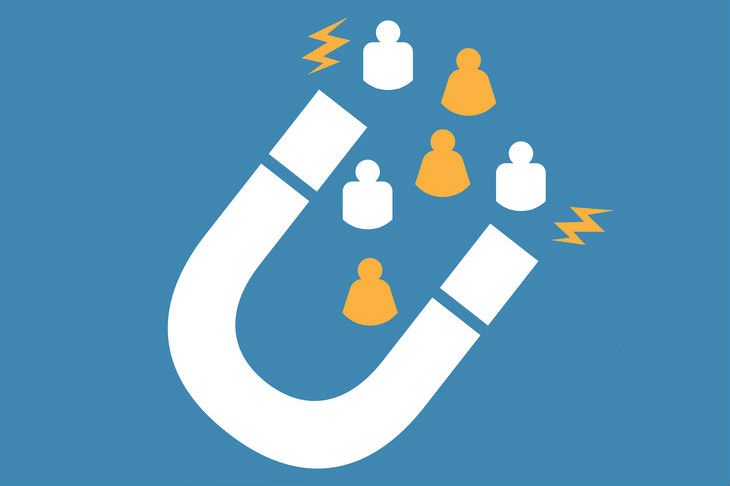
Get weekly
HubSpot updates
So you’ve got a limited marketing budget, small team and even less marketing knowhow. Maybe you think it’s impossible to do an effective job with these constraints.
We hear this time and time again from small businesses - and we couldn’t disagree more.
So if you’ve got limited resources it’s essential that you get your marketing right. Here are five of the most common marketing mistakes made by small businesses and SMEs, as well as how to avoid them.
Mistake #1: Not promoting yourself enough
It seems obvious but it’s amazing how many brands fail to shout about how fantastic their product or service is.
It’s true that you don’t want all of your marketing messaging to be entirely self promotional - particularly on social media - but you still need to educate your target market on what you do and why they should pay for it.
Some massive brands are the exception to this rule. Think Red Bull or Coca Cola, whose product is well known enough that they don’t need to talk about it specifically. For example, the former’s marketing is dominated by coverage and sponsorship of extreme sports (and Formula One), not why you should drink Red Bull.

Red Bull's Facebook page is dedicated almost entirely to extreme sports.
How much self promotional your content is depends on the platform. The vast majority of web page content needs to promote your products and services; your blog should be a healthy balance between the two (skewed towards non-promotional content that answers questions and solves common issues); while your social media should be almost entirely non-promotional of your products or services.
Note that these are general guidelines and how appropriate it is to big up yourselves on certain platforms will depend on your brand.
Mistake #2: Ignoring SEO
We talk to a lot of small businesses and SMEs who think search engine optimisation is just for the big brands who have the time and budget to invest in it.
On the contrary, without the recognition that many of the world’s biggest companies enjoy, ranking well in Google’s SERPs is essential to ensure a smaller brand is discovered.
What’s more, implementing the basics of SEO on your website doesn’t have to break the bank, while you also don’t require high-level coding knowledge to do so.
Check out Moz’s excellent Beginner’s Guide to SEO, and our free eBook, The Beginner’s Guide to On-page Optimisation for help getting started.
If you’re a brand that relies on local custom, then it’ll also be worth taking a look at Shopify’s Beginner’s Guide to Local SEO for Small Businesses.
Mistake #3: Thinking blogging won’t ‘work’ for you
The same small businesses and SMEs that think they’re not in a position to think about SEO also often think that blogging isn’t for them either.
Perhaps they won’t have the time and resources to devote to creating great content on a regular basis, and we get that, but by neglecting this element of your digital strategy you are missing out on website traffic and the leads that can come from it.
Download our free eBook, The Beginner’s Guide to Blogging for Small Businesses
The majority of your website’s visitors will likely still be in the research phase of the buyer’s journey. They’re not ready to make a purchasing decision yet, but they know they’ve got a problem or need, and that your product or service could help. This is where your blog content can come in, helping to answer the questions they still have and demonstrating how what you do can solve the problem.
To blog successfully, make sure that you:
- Host the blog on your website, not a separate domain;
- Avoid churning out content for the sake of it - it will only achieve the results you want if you take the time to make sure it’s high quality and offers genuine value to the consumer;
- If you enable comments, you respond to every one of them to build a sense of trust within your blog community.
If your team doesn’t have the capacity to start creating blog content, consider hiring a dedicated content writer or working with an agency that can handle it for you.
Mistake #4: Avoiding social media
Due to the nature of social media a lot of companies, of all sizes, consider it to be a bit of a waste of time. Even if they see the value in maintaining an engaged social following, it will often be the first thing to go if they’re looking to save money.
It’s understandable why people who don’t work in digital marketing would think this way, but it’s a mistake.
Nowadays, social media will be the first port of call for many consumers who want to ask questions of a brand or report an issue with a product or service.

The likes of Facebook and Twitter is also where your target audience are spending much of their leisure time, so if you’re not reaching them here then you’re missing out on a huge opportunity for brand exposure.
Check out our blog on why social media is the midfielder in your digital marketing football team.
Mistake #5: Failing to network
A lot of people struggle to speak publically, so as far as attending conferences to promote your brand then this is out, right?
Wrong. You don’t need to be speaking at a conference to make it worthwhile for your company to attend. Conferences and industry events are fantastic networking opportunities, and although not everyone you speak to will lead to new business, they might well know someone that could become a lead.
You might also be able to connect with people from within your industry who you can learn from or even collaborate with.
These mistakes not only impact the reach of your brand message, they can also affect the number of leads your website generates and, as a result, how profitable your digital presence is.
Download our free eBook, 9 Things You Can do to Generate More Leads, to find out more ways you can bring in more leads via both online and offline channels.

